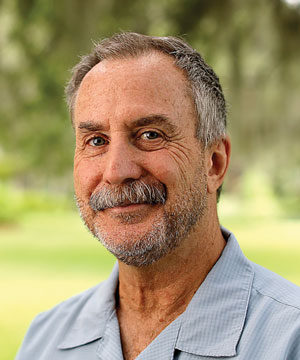Celebrating 35 Years — Vanguards Who Made a Difference: WILLIAM WATSON
February 6, 2025 | 5 min to read
Over the course of the year, we pay tribute to 35 living Vanguards and 12 departed heroes. This month’s featured Vanguard is William Watson, The Fresh Approach.
Originally printed in the June 2021 issue of Produce Business.

William Watson changed the landscape for U.S. commodity research and promotion boards. Bringing together different industry viewpoints and interests has always been important for Watson, who helped create and lead two key industry promotion boards.
As president of The Fresh Approach, an Orlando, FL, consulting and organizational management firm, Watson likes to say he’s “Harvesting New Ideas for the Future.”
Watson was the first executive director of the National Watermelon Promotion Board (NWPB), which he headed from 1990 to 2003. In addition to being the National Mango Board’s (NMB) first executive director, through his consultancy, Watson was closely involved in the long process of securing industry support and gaining U.S. Department of Agriculture approval of the organization. Watson headed the NMB from 2006 to 2014.
“To my knowledge, before William figured it out [when he headed the Mango Board], there was no blueprint for U.S. commodity boards to form for items that were nearly 100% imported,” observes Wendy McManus, a leadership coach with Connect 2 Potential who worked with Watson in marketing at the NWPB and NMB.
Watson’s leadership skills were put to the test in 2000 when a Milwaukee child died after eating watermelon at a restaurant. In shepherding the industry through that crisis, Watson says he learned the value of patience and openness in taking actions. He relied on the counsel of Bryan Silbermann, the former head of the Produce Marketing Association, who recommended not commenting until the government returned with test results. That advice was valuable as the death originated from cross-contamination after a cook re-used a knife that had cut raw meat.
“I learned to be patient and trust science,” says Watson. “Also, to be completely transparent in your actions. Now that news can travel so fast, it’s immediate. The old crisis communications models don’t apply today. Technology allows us to do things to deliver safe products, but we still want to have effective crisis communications in your toolbox.”
A big challenge that pressed the watermelon industry was consumer and retailer demand for smaller melons. Unlike today’s watermelons, which are lighter and delivered in cardboard bins, watermelons used to be loaded bulk in 40-foot trailers with straw, manually unloaded and placed on supermarket floors. Retailers sliced the 25-pound melons to the smaller sizes.
The NWPB employed consumer data — new at the time — to develop tools the industry could use to meet the marketing challenges of delivering smaller melons requested by their customers. Some who found it easier to stick to the old ways missed opportunities.
“If you don’t grow those smaller melons, someone else will,” says Watson. “Coming in and considering what consumers want was foreign to a lot of shippers.”
Watson has served on industry committees, including those in the United Fresh Produce Association, and on the Produce Marketing Association consumer education committee, which preceded Produce for Better Health. Watson was also one of the Southeast Produce Council’s founders.
“Anytime one can enhance the relationship on the producer-shipper level to the retail or foodservice customer, there’s a value in bringing people together and helping each segment understand the other segment,” he says. “The industry has done a good job knitting all these skills and experiences together to move it forward.”
After the watermelon board, Watson started his consultancy and in 2003, formally organized the Commodity Roundtable. The organization brings together commodity board leaders who can support, advocate and present a united front to the USDA, instead of competing against each other.
“It’s critical to be involved,” he says. “Being at the point of the spear regarding trends and being part of an entity to bring people together is really important.”
A Tyler, TX, native, Watson began his produce industry career growing and shipping sweet onions, watermelons and blueberries. He also owned and managed an East Texas retail/wholesale produce market and raised a 100-head herd of registered Black Angus cattle. In the late 1980s, Watson was assistant to the manager of the Texas Vegetable Association and Texas Citrus Mutual.
People and the industry’s products remain Watson’s passions.
“Some of the nicest, kindest, most creative and interesting people I have met are in the produce sector,” he says.
Watson considers Charles “Buddy” Leger, founder of Leger & Son, Inc., Cordele, GA, a mentor. “I would not want to go through creating a watermelon checkoff board without Buddy,” says Watson. “He was a leader in the industry and a great compass.”
According to McManus, “William was the first person I worked for who was more interested in what I thought than in getting across his own point. This focus on people is what made him a great leader.”
Watson, who began working as managing director for the Colombia Avocado Board in 2020, says a new set of skills is required for today’s produce industry leaders. “You have to be flexible and nimble in the marketplace. How we communicate with one another and consumers is different now and continues to be a challenge. You can’t afford to stay in a rut. If you’re not flexible, you will be out the door.”
When McManus considers what makes Watson an industry vanguard, she notes his willingness to try something different.
“He’s a big-picture thinker,” McManus says. “He gets excited about the opportunity to step out of his own comfort zone and is such a great leader that others will follow him out there to unknown space.”
Watson also possesses a genuine interest in and love for people, says McManus. “He listens. He cares about what’s important to them.”

